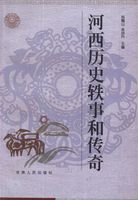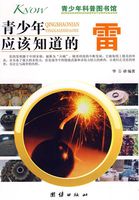Rome, like most of the other ancient republics, was originally founded upon an Agrarian law which divided the public territory in a certain proportion among the different citizens who composed the state.The course of human affairs by marriage, by succession, and by alienation, necessarily deranged this original division, and frequently threw the lands, which had been allotted for the maintenance of many different families, into the possession of a single person.To remedy this disorder, for such it was supposed to be, a law was made restricting the quantity of land which any citizen could possess to five hundred jugera, about three hundred and fifty English acres.This law, however, though we read of its having been executed upon one or two occasions, was either neglected or evaded, and the inequality of fortunes went on continually increasing.The greater part of the citizens had no land, and without it the manners and customs of those times rendered it difficult for a freeman to maintain his independency.In the present time, though a poor man has no land of his own, if he has a little stock he may either farm the lands of another, or he may carry on some little retail trade; and if he has no stock, he may find employment either as a country labourer or as an artificer.But among the ancient Romans the lands of the rich were all cultivated by slaves, who wrought under an overseer who was likewise a slave; so that a poor freeman had little chance of being employed either as a farmer or as a labourer.All trades and manufactures too, even the retail trade, were carried on by the slaves of the rich for the benefit of their masters, whose wealth, authority, and protection made it difficult for a poor freeman to maintain the competition against them.The citizens, therefore, who had no land, had scarce any other means of subsistence but the bounties of the candidates at the annual elections.The tribunes, when they had a mind to animate the people against the rich and the great, put them in mind of the ancient division of lands, and represented that law which restricted this sort of private property as the fundamental law of the republic.The people became clamorous to get land, and the rich and the great, we may believe, were perfectly determined not to give them any part of theirs.To satisfy them in some measure therefore, they frequently proposed to send out a new colony.But conquering Rome was, even upon such occasions, under no necessity of turning out her citizens to seek their fortune, if one may say so, through the wide world, without knowing where they were to settle.She assigned them lands generally in the conquered provinces of Italy, where, being within the dominions of the republic, they could never form an independent state; but were at best but a sort of corporation, which, though it had the power of enacting bye-laws for its own government, was at all times subject to the correction, jurisdiction, and legislative authority of the mother city.The sending out a colony of this kind not only gave some satisfaction to the people, but often established a sort of garrison, too, in a newly conquered province, of which the obedience might otherwise have been doubtful.A Roman colony therefore, whether we consider the nature of the establishment itself or the motives for making it, was altogether different from a Greek one.The words accordingly, which in the original languages denote those different establishments, have very different meanings.The Latin word (Colonia) signifies simply a plantation.The Greek word apoikia, on the contrary, signifies a separation of dwelling, a departure from home, a going out of the house.But, though the Roman colonies were in many respects different from the Greek ones, the interest which prompted to establish them was equally plain and distinct.Both institutions derived their origin either from irresistible necessity, or from clear and evident utility.
The establishment of the European colonies in America and the West Indies arose from no necessity: and though the utility which has resulted from them has been very great, it is not altogether so clear and evident.It was not understood at their first establishment, and was not the motive either of that establishment or of the discoveries which gave occasion to it, and the nature, extent, and limits of that utility are not, perhaps, well understood at this day.
The Venetians, during the fourteenth and fifteenth centuries, carried on a very advantageous commerce in spiceries, and other East India goods, which they distributed among the other nations of Europe.They purchased them chiefly in Egypt, at that time under the dominion of the Mamelukes, the enemies of the Turks, of whom the Venetians were the enemies; and this union of interest, assisted by the money of Venice, formed such a connection as gave the Venetians almost a monopoly of the trade.
The great profits of the Venetians tempted the avidity of the Portuguese.They had been endeavouring, during the course of the fifteenth century, to find out by sea a way to the countries from which the Moors brought them ivory and gold dust across the desert.They discovered the Madeiras, the Canaries, the Azores, the Cape de Verde Islands, the coast of Guinea, that of Loango, Congo, Angola, and Benguela, and, finally, the Cape of Good Hope.
They had long wished to share in the profitable traffic of the Venetians, and this last discovery opened to them a probable prospect of doing so.In 1497, Vasco de Gama sailed from the port of Lisbon with a fleet of four ships, and after a navigation of eleven months arrived upon the coast of Indostan, and thus completed a course of discoveries which had been pursued with great steadiness, and with very little interruption, for nearly a century together.















